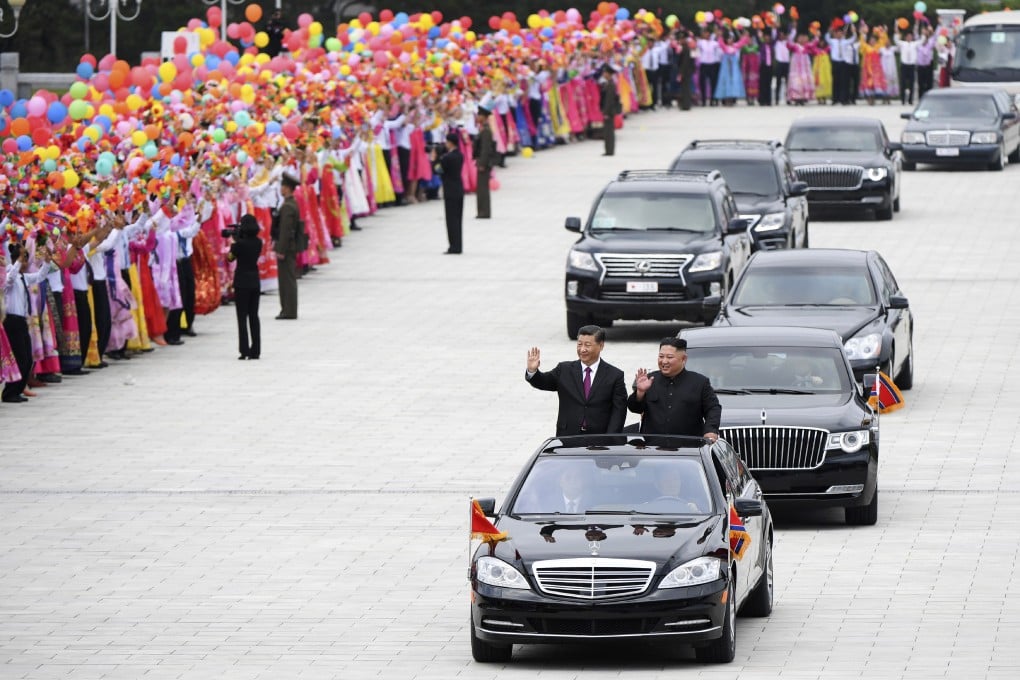Advertisement
What do Kim Jong-un’s limousines reveal about effects of UN sanctions and the ways North Korea evades them?
- Kim’s willingness to show off his luxury cars may be a deliberate signal that he can thumb his nose at sanctions
- Or it could be a propaganda display to distract from how hard the sanctions are biting
Reading Time:5 minutes
Why you can trust SCMP

Last year, Hugh Griffiths received startling new evidence that North Korea had been violating global economic sanctions: a photograph of Kim Jong-un emerging from a sleek, black Rolls-Royce Phantom limousine on his way to a meeting with US Secretary of State Mike Pompeo.
UN sanctions bar North Korea from purchasing certain luxury goods – such as jewellery, yachts and limos, like the one Kim used to ferry him around Pyongyang last October, when Pompeo visited to press Kim to follow through on his pledge to relinquish North Korea’s nuclear arsenal.
Until recently, Griffiths was coordinator of the UN panel devoted to documenting North Korea’s clandestine purchase and sale of banned goods – from multimillion-dollar petroleum transfers to a batch of suspected Belarusian vodka. The pictures of Kim stepping out of the Rolls-Royce limo opened a new line of inquiry for Griffiths and his team at the UN, one that was both promising and troubling.
Troubling because if Kim could evade the global sanctions network to sneak in something as big as a limousine, the North Koreans were almost certainly smuggling in more pernicious goods as well.
Advertisement
“That’s what was going on in my mind,” Griffiths told USA Today in a recent interview.
Griffiths, whose term at the UN expired earlier this year, is an expert in transportation trafficking and clandestine political economies who previously worked for other governments and research organisations in Eastern Europe and elsewhere.
Advertisement
“If you can smuggle luxury limos into North Korea, which is done by shipping container, that means you can smuggle in smaller components – dual-use items for ballistic and nuclear programmes … That’s the really worrying thing.”
The Trump administration has sought to tighten UN sanctions on North Korea, winning support in 2017 for a ban on the country’s coal and other exports. Nikki Haley, then Trump’s ambassador to the UN, called the measures “the most stringent set of sanctions on any country in a generation”.
Advertisement
Select Voice
Select Speed
1.00x